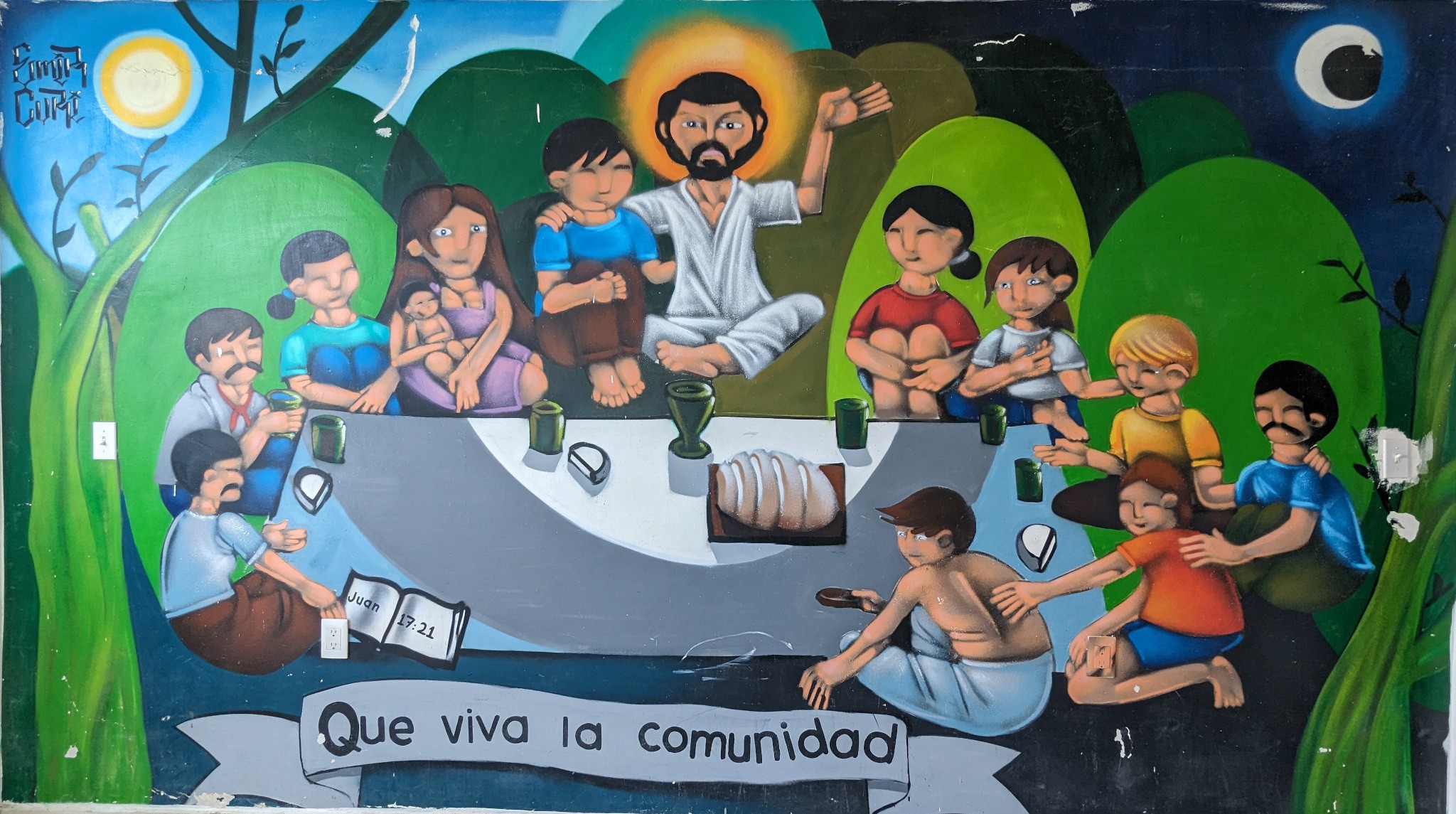Overview – Roots of Poverty
There are elements in every worldview or culture that are not life-affirming or beneficial for the poor. As a result, many migrants and urban poor live by cultural narratives that mar their identity and keep them from pursuing better lives. Overwhelmed and disempowered by the stresses of life in a fragile city environment, they are marked by despair, hopelessness, resignation, and fatalism. The identity and vocation of the poor become marred as they’re entangled in a web of lies, convincing themselves they can’t make a difference. Consequently, many don’t even try.1 On the opposite end of the societal spectrum, entitlement, love of power, and feelings of ordained privilege manifest as god-complexes among the elites. What can change this?
Part of the solution involves an approach that takes worldview and values transformation, as well as psycho-spiritual recovery, seriously. Ivan Illich, the philosopher and social theorist, was once asked, “What is the most revolutionary way to change society: Is it violent revolution or gradual reform?” He gave a careful but insightful answer: “Neither. If you want to change society, then you must tell an alternative story.” 2
“If you want to change society, then you must tell an alternative story.“
Ivan Ilich
Flawed worldviews and cultural narratives can be significant obstacles to positive change. Therefore, transforming worldviews and narratives often plays a central role in addressing geographies of poverty. In some cases, people’s worldviews are so distorted by a web of lies that progress is nearly impossible until they undergo a major paradigm shift.
This has huge implications for the design of urban development processes and should lead us to analyze the transformational change model we are proposing. Is it truly a people-centered model? Are we addressing the deep-seated worldviews and cultural narratives that hold people back? By focusing on holistic transformation that includes worldview and narrative change, we can better support individuals and communities in overcoming the obstacles that prevent them from achieving sustainable progress.3
The Importance of Spiritual Transformation
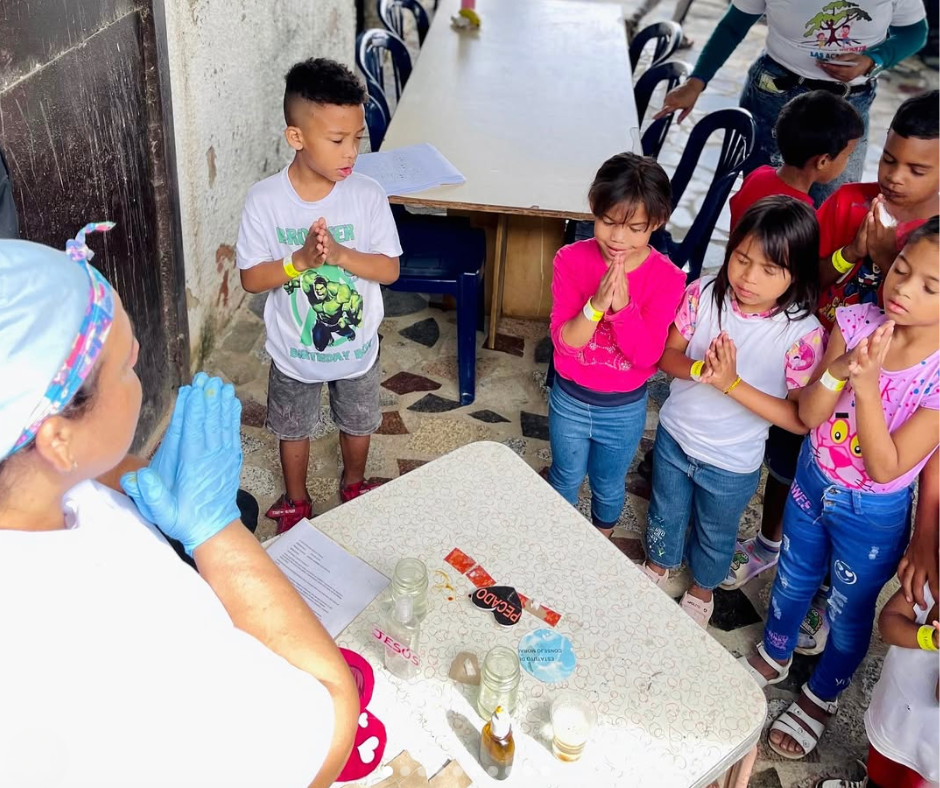
To find solutions that contribute to holistic transformation, we must explore new avenues, such as faith communities and values-based mutual support groups, including addiction and emotional recovery groups.4 Increasing evidence shows that poor communities worldwide trust faith leaders and institutions more than many other types of institutions.5 Faith communities are often seen as sources of hope and trust amid rampant corruption. Therefore, the transformative power of faith traditions must be acknowledged and given space, allowing people to experience spiritual transformation and liberation.
It has become clear to many that without restoring the psychological and spiritual well-being of people, transformation of any kind is not sustainable. When a person does not or cannot work through pain and trauma, the social consequences, including apathy, isolation and aggressiveness, affect not only that person, but an entire community. Unprocessed traumas, grief and other wounds explain much of the lack of involvement of poor people in their own development. Indeed, many development projects, despite best intentions, go nowhere, because people are still burdened by their unprocessed pain, losses and disillusion.6 Access to spiritual and emotional power, then, is as important to the urban poor as is social and political power. People need to be liberated from those things that strangle their emotional, spiritual and mental life. They need to explore their spiritual dimension to improve their own mental and physical health.7 How can this happen?
It has become clear to many that without restoring the psychological and spiritual well-being of people, transformation of any kind is not sustainable.
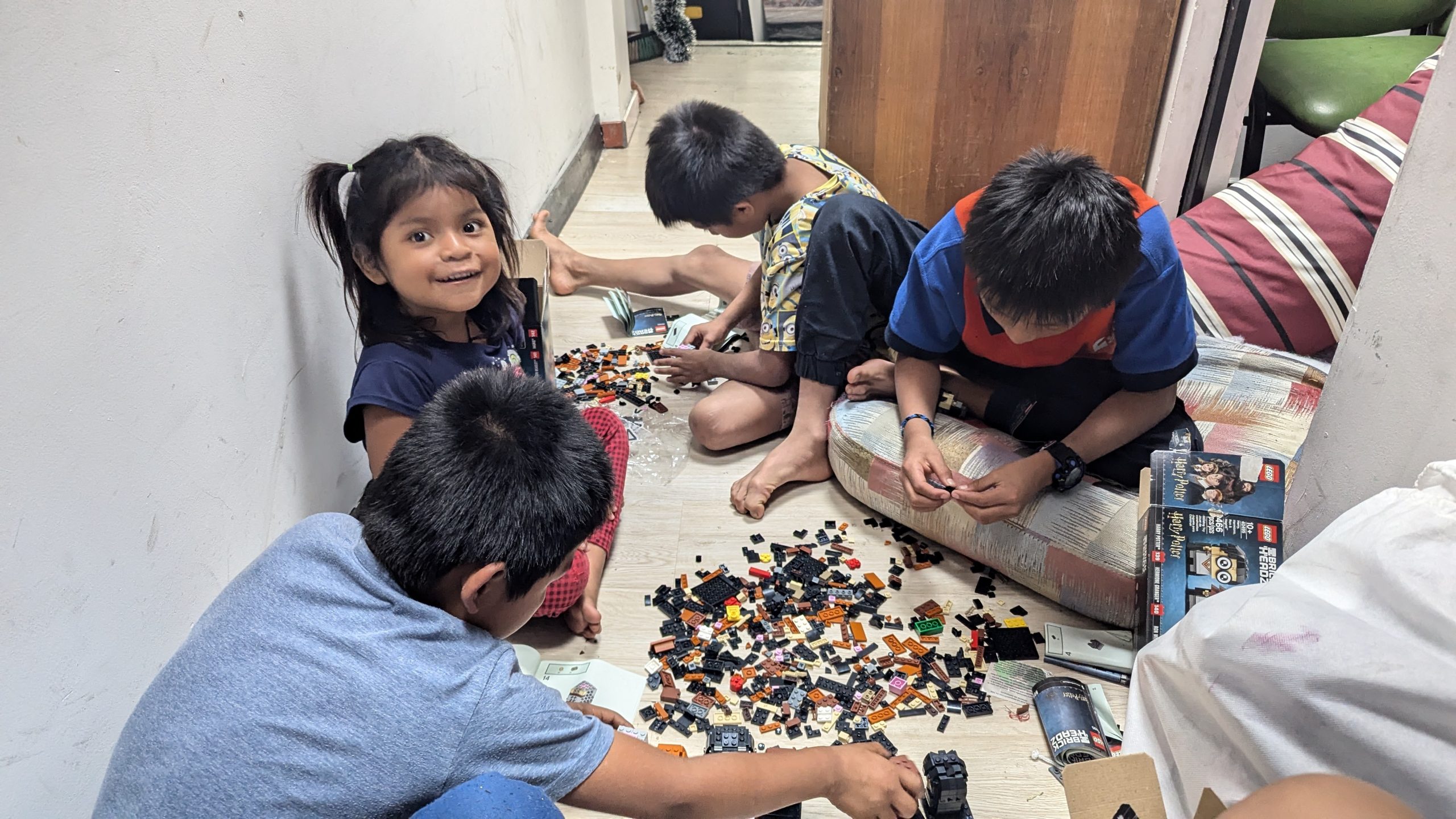
As Christians we believe this can happen when people encounter God. We think that the web of lies that many are entangled in can be freed, only when the root cause of spiritual brokenness is addressed. That is, when people come to believe and embrace that there is a loving God who wants to embrace them and walk alongside them to initiate renewal in their lives and that only repentance and forgiveness can lead to this kind of renewal. Since repentance in its truest meaning is changing one’s mind, this must include allowing God’s truth to confront the delusions and lies that the poor and the non-poor alike believe. It also means that we must seek the healing of the marred identity and vocation of the poor as well as non-poor, helping them discover that their human dignity and identity are intrinsically related to God. Indeed, that God hasn’t forgotten them.8 As they begin their journey in a community of faith, are formed into disciples, more and more conforming to the image of Christ, they are disentangled from the web of lies, liberated from the corrupting and oppressive power of sin, healed and renewed to the end that they might be freed to love and serve God and neighbor. This has enormous implications for every aspect of their lives – their work, leisure, family life, civic duties, and so on.9
Faith communities, consequently, are crucial to transformational change. However, it is important to recognize that faith communities and mutual support groups cannot address the complexities of fragile communities and cities alone. They need the collaboration of city authorities, business communities, and NGOs. Many have tried to tackle these challenges independently and failed. Yet, city authorities, business communities, and NGOs cannot succeed without the involvement of faith communities and support groups either. Here’s why:
Why Faith Communities?
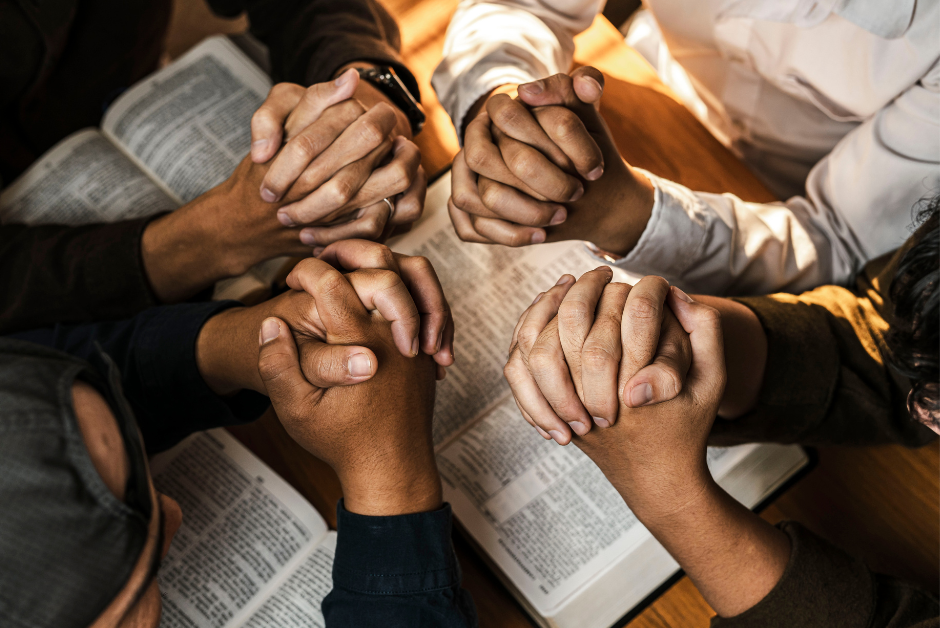
Local faith communities have the:
- Presence. Faith communities are often the only effective or influential community-based organizations in fragile urban environments. They generally understand local social and cultural patterns, know the people and communities they serve, mobilize people and resources – including vast armies of volunteers – and reach isolated areas because of their extensive networks and strong infrastructures, says former Harvard University senior health research scientist Edward C. Green.10 The fiscal contribution of this army of faith-based volunteers throughout Africa, for example, is enormous — their labor was conservatively estimated to be worth US$5 billion per annum in 2006, an amount similar in magnitude to the total funding provided for HIV/AIDS by all bilateral and multilateral agencies.11 Other estimates put the share of faith-run hospitals in Africa at around 60%.12 Also, while most NGOs and government agencies enter fragile communities from the outside for a limited time, local faith communities are in it for the long run. Sustaining change becomes more likely, due to their incarnational presence and the trust capital awarded them by their communities.
- People-focus. Frequently, faith communities offer less-tangible means for self-fulfillment and communal well-being, including relational community as a response to isolation. By enfolding urban poor neighbors into loving, supportive communities that legitimate the pursuit of their ambitions for a better life, they actively contribute to community building. In fact, it is in the context of face-to-face, personal relationships that we are able to begin to get at the root causes of people’s persistent poverty. It’s through real relationships that people feel loved and begin to have hope. It’s through real relationships that trust emerges to process past pain and trauma. It’s through real relationships that moral accountability can happen and where the teaching of essential life skills can happen.13 Faith communities often embody this relational commitment to people caught in the poverty cycle. They focus on people, not just their problems, and people served are seen at not as clients but as neighbors.
- Promise of Hope and Change. People suffering from abuse, violence and hopelessness fill fragile cities. Many have nowhere to turn. Faith communities, however, are known to extend care and hope to the vulnerable and marginalized, showing them that God values them as much as the non-poor. This boosts the self-esteem of those crushed by poverty and helps them gain a new vision for life. Indeed, by helping people caught up in a web of lies change the way they see the world and themselves in it, faith communities provide crucial elements to overcoming the deep-rooted poverty of being. What’s more, their belief in a God of loving power allows them to point people to seek God for help, personally and as a community through fervent intercessory prayer. It also uniquely places them to model relations that lift people from utter powerlessness to responsible citizens filled with new hope and dreams of transforming their communities.
- Prophetic Voice. Faith communities are frequently in a position to proclaim the truth with authority, expose the idolatry of the poor and non-poor alike and unmask the powerlessness of their idols to provide wellbeing.14 They often have expertise in promoting behavior change, modeling good conduct and helping people grapple with ethical issues ranging from corruption, to public integrity, to use of power. The Gospel offers lasting change from the inside out. In Christ, people find new will and power to give up destructive behavior. Through solid Bible teaching they come to see their potential as beings made in God’s image and their responsibility for the well-being of others. Indeed, because they frequently ask the people they serve to give back, to help others and become a blessing to them — that gives participants a fulfilling, meaningful mission in life. It enhances their dignity because they now have the joy of being givers. Faith communities sometimes also take on prophetic roles, standing as courageous leaders who “speak truth to power” and help trace positive future strategies based on a true appreciation of the importance of human dignity.15
- Power. As civic institutions, faith communities that unite to improve their communities can initiate powerful social movements. When churches emerge from isolation and collaborate, they become a formidable force for change, capable of making a significant impact. Historical examples include the Civil Rights Movement in 1960s America and the Global Jubilee 2000 debt relief movement in the late 1990s. Faith communities are also often the most cost-effective means of delivering services, as millions of committed volunteers lovingly engage in educational, recreational, counseling, and other programs, coming alongside others less fortunate. Additionally, faith communities can serve as seedbeds for developing individuals into leaders who become actively involved in government, business, or sustainable development initiatives. With support and accountability from the Church, these leaders can become influential change agents in public policy, economic development, and judicial reforms at significant levels.
For all these reasons, faith communities are vital to any transformational agenda.
Limitations of Faith Communities
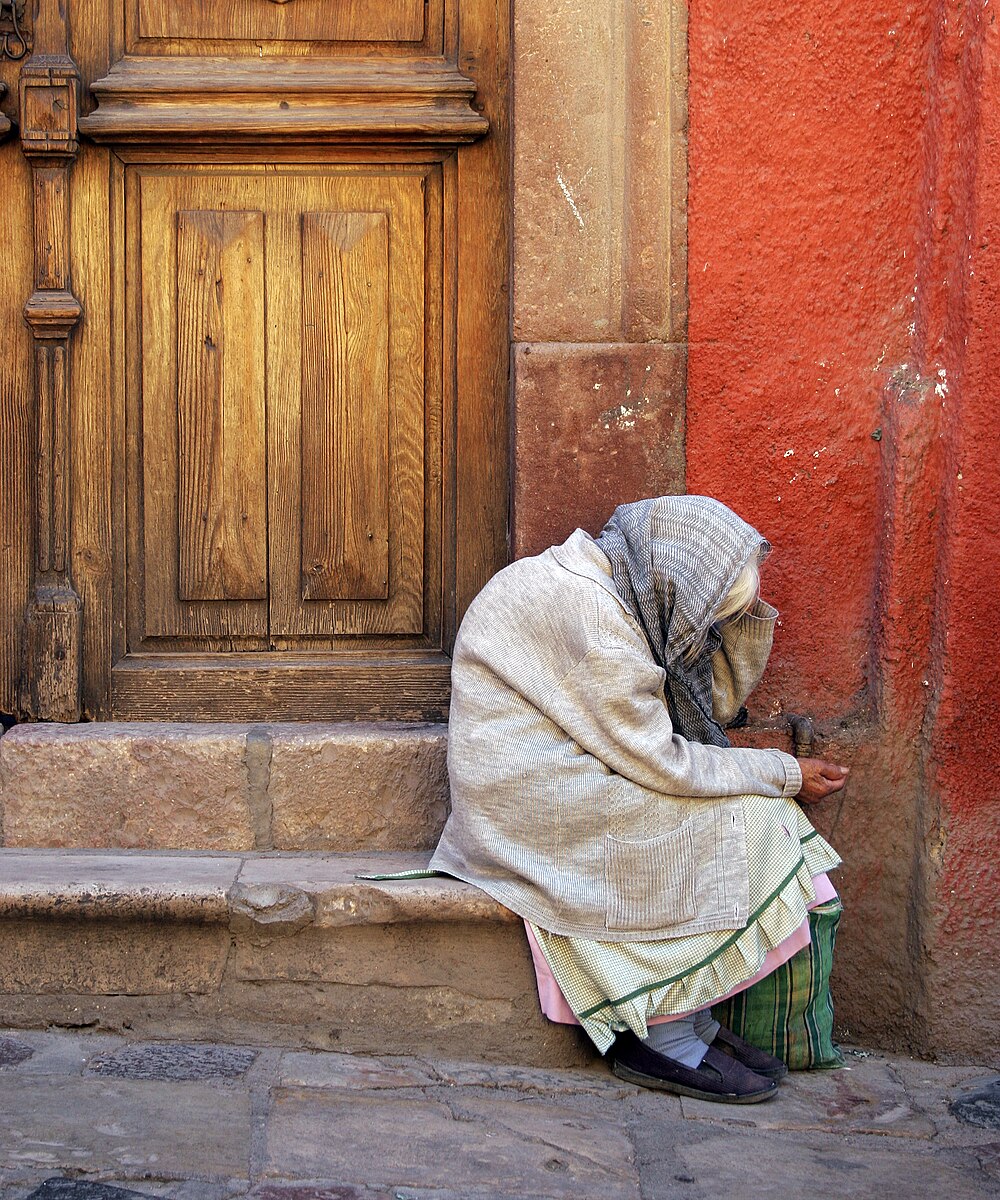
Despite their many virtues, faith communities also have significant limitations and shortcomings. It is foolhardy to approach faith communities with naiveté or rose-colored glasses. Many are suspicious of perspectives that do not focus exclusively on their own growth and doctrinal teaching. As a result, they may incite their members to withdraw from relationships with people outside the faith community and would never work alongside those who do not share exactly the same beliefs they do. Others spread beliefs and impose rules and prohibitions, that spiritually, psychologically and emotionally oppress and paralyze people instead of liberating them. Yet others are divisive, corrupt, and fail to live up to their own values. In fact, they may contribute to contention, hostility, and social exclusion within their own communities. Others still, lack professionalism, technical skills, and the organizational capacity to address critical issues that require coordination and strong leadership in their neighborhoods. As a result, they often create more dependency instead of fostering transformational development. While they may be effective at helping people manage their poverty, they are not as successful at helping them escape it.
In addition, divisions, protagonism, abuse of power and acronymous infighting has deeply marred the church and limited its influence and ability to effect positive change. Over the past decade, in particular, a growing number of churches and faith leaders have made a public spectacle of themselves, clamoring for wealth and political influence. They have allowed themselves to be politicized and used by partisan groups or politicians from both the left and the right. This deliberate posturing to gain fame and a seat at the table of the powerful has deeply hurt the credibility and moral authority of the church.
There is a notable gap in integrating the love of God and the principles of the Great Commission with the love of neighbor and the Great Commandment.
What’s more, despite the significant presence of faith communities in cities across Latin America, this has not significantly altered the reality of urban fragility, violence, and migration. Sadly, most churches prioritize internal growth and liturgical practices over active engagement with their broader communities, neglecting opportunities to serve, address social injustices and engage in community transformation. There is a notable gap in integrating the love of God and the principles of the Great Commission with the love of neighbor and the Great Commandment. As a result, most churches live as liturgical communities and fail to embrace their potential as missional communities. This inward focus limits their impact and prevents them from fulfilling their transformative potential in society. For these reasons, many people, organizations, and public institutions regard faith communities with suspicion and have low expectations of their capacity for transformational change.
Despite their clear limitations, Camino Alliance considers faith communities important allies in our goal to transform fragile cities into SHALOM cities. Acting with justice and loving mercy are central to the purpose of many faith communities, making them potentially powerful and transformational forces in the fight against poverty and corruption, regardless of race, religion, nationality, or gender. While still too few faith communities are currently directly and effectively engaged in combating poverty and corruption, many have the potential to become involved. This potential can be realized once they embrace a biblical missiology and ecclesiology that compels them to step out of their four walls and actively seek the SHALOM of their communities. By doing so, they can play a crucial role in freeing people from the cycles of poverty, violence and corruption.
The Importance of Involving Faith Communities in Transformational Change

Many international and national agencies engaged in urban change, focus primarily on urban development and structural adjustments, mainly through a menu of measures that seek to improve urban governance, built space, and infrastructure development via urban upgrading. However, many experts today recognize that, despite good intentions and efforts, urban planning and urban development policies have had limited impact, particularly when a culture of corruption is prevalent at all levels of society. Therefore, while such initiatives and institutional reforms are essential, urban change and the fight against poverty, corruption and social exclusion must take into account underlying cultural forces. Institutional weaknesses and the lack of good governance and citizen participation cannot be isolated from the cultural values and attitudes within their local contexts. Fragile institutions and communities reflect those values. As one African commentator says, “culture is the mother, institutions are the children.” 16
In this sense, underdevelopment, social exclusion and corruption will never be eradicated if cultural, religious and spiritual factors are left out of the equation. While systemic and governmental efforts at the general level are essential, it is the personal ethics and moral values of individual public servants and the population at large that foment greater public integrity and inclusion. Sustainable urban transformation, it follows, must include a focus on personal and community ethics. This is the only way to strengthen the value of a “common good”, and to change the culture of corruption, social exclusion, and the scarcity mentality prevalent in most fragile cities.
Unfortunately, until recently, most development agencies and multilateral funders were uncomfortable encouraging faith-based transformation efforts, because of a social science tenet stating that one should not impose one’s own values or religious beliefs on others. While they thought their intent was noble, that perspective led many development theorists to avoid the topic of religion and spirituality altogether “out of respect for local culture.”17 But the consequence of that position was to promote and, in fact, impose a Western-centric and nonreligious worldview onto many cultures, even though most cultures in the developing world embrace religion and spirituality. In doing so they breached their own non-prescriptive social science tenet.
If truth be told, the notion that secular organizations have “neutral” religious perspectives while faith communities are “biased” is untenable if not condescending.18 What’s more, it directly undermines efforts undertaken by local faith-based agents of change, discrediting a legitimate source for social transformation. Religious faith and spiritual values can affect culture, so the international cooperation community, academic institutions as well as governmental entities, need to better understand and appreciate how religious and spiritual values and faith-based institutions can serve as a source of values formation and ethical behavior in many communities, thereby contributing to sustainable urban development and the fight against corruption.19 Thankfully, large entities, such as the World Bank and the World Health Organization, have reconsidered their former stance on this issue and have intentionally engaged faith communities as allies in the fight against poverty, corruption and pandemics, such as HIV/AIDS. 20
Indeed, a seminal study by the World Bank, Voices of the Poor, suggests that there is increasing evidence that poor communities across the world trust faith leaders and institutions more than many other types of institutions, particularly politicians and government entities.21 Faith communities often are seen as a source of hope and trust amid rampant corruption. Consequently, they can be crucial allies in the fight against poverty and corruption. This is particularly the case when they take ownership of a transforming vision. In doing so they can help people gain self-esteem, identity and hope, and form new values and ethical conduct in them – all powerful catalysts for transformational change.
It is a transformed person, forming part of a transformed community, who transforms his or her environment, who helps reconstruct a society’s fabric – not money, nor programs.
In summary, it is a transformed person, forming part of a transformed community, who transforms his or her environment, who helps reconstruct a society’s fabric – not money, nor programs. There can be no social change without personal change, without a change in hearts and minds. So, unless a person caught in a web of lies experiences psycho-spiritual recovery, undergoes narrative change, alters their way of thinking (worldview), and undergoes a values transformation, long-lasting change will not happen, including their movement out of poverty will always be hampered.
To succeed in fighting fatalism, corruption and crushing poverty in fragile cities, the growing presence of engaged faith communities and values-based support groups is vital. This is well illustrated by the experience of historically Protestant societies, where honesty and reciprocity are widely practiced not only in the family, but outside the home.22 As Ronald Inglehart observes, these societies rank higher in interpersonal trust, and this trust correlates with better scores on Transparency International’s Corruption Perceptions Index.23 In other words, countries with a Protestant tradition and values system are less corrupt than others, because in the absence of honesty, trust levels are lower and thus there is widespread corruption and nepotism.24
Non-Governmental Organizations (NGOs) and other agencies must build the capacity of community-based organizations (CBOs) and local faith communities to engage effectively, drive cultural change, foster a culture of public integrity at the local and municipal levels, and implement holistic projects through broad-based coalitions and citywide federations. These federations should engage in advocacy to effect systemic changes. Without this support, the advantages and inherent benefits of faith-based interventions cannot be fully realized.
NGOs will always play a crucial role in providing technical expertise and access to financial resources that local faith communities or community-based organizations may lack. However, to transform fragile cities, NGOs and governmental entities should, in the long run, shift their focus to becoming supporters and facilitators of cooperative partnerships and community-driven solutions. These solutions should connect grassroots efforts with stakeholders at the government and business levels, ensuring a comprehensive and sustainable approach to urban transformation.
In the words of The Faith and Public Integrity Network: “We recognize that most efforts to control corruption have failed, and that churches and individual believers are often complicit in corruption. However, based on the research findings of leading scholars and the experience of our members, we believe there is potential for the global Christian community to make a difference.”
That is why Camino Alliance emphasizes including faith communities and leaders in urban change efforts – not only among the poor, but also among the rich of a city. Working with faith communities and equipping them to help their members integrate their faith and values into their realms of influence is as critical as training them to involve themselves in transformational initiatives to change their fragile cities. Helping faith communities encourage the individual vocations of each of their members in every sphere of social life (business, philanthropy, education, government, research, art, culture, health etc.), is critical to achieve the constructive subversion of all frameworks of social life that are incompatible with the Shalom for which they were made, for which we were made, and to which we are all called.25
Footnotes
- The following two examples illustrate the workings of this narrative: Jorge, a taxi driver in an urban slum on the outskirts of Mexico City surmises: “Given all the injustice, corruption and poverty that we’re up against, there’s not much we can do. Another bloody revolution won’t do the trick. It would simply exchange some governing heads for others. I guess all we can do is to bear life as best we can. One thing stands: Real changes will never occur here.” Maria, another urban slum dweller, who was sold by her father to a business man at the age of 14 to settle a personal debt and only was able to flee from her tormentor 9 years later, often feels resigned: “Since I’m not intelligent and have no education and talents, I can’t do much to advance in life. I am a nobody here. Only the politicians and business people in my city can change things. But they obviously don’t want to. So, I guess, the kind of life I’m currently living is the life I have to accept. Apart from surviving there’s not much else I can do. Why hope for a better future, when I will be disappointed anyway?” ↩︎
- Neil Cole. Organic Church: Growing Faith Where Life Happens. San Francisco: Jossey-Bass, 2005. ↩︎
- Steve Corbett, y Brian Fikkert. When Helping Hurts: How to Alleviate Poverty Without Hurting the Poor… and Yourself. Chicago: Moody Publishers, 2014. ↩︎
- A faith community can be defined as “a group of individuals who have come together voluntarily around a stated spiritual or belief system that informs and guides their work and life together.” Edward C. Green. Faith-Based Organizations: Contributions to HIV Prevention. Washington, DC: United States Agency for International Development (USAID), 2003. ↩︎
- A series of surveys led by the World Bank affirmed these high levels of trust. Deepa Narayan. Voices of the Poor. Washington, DC: The World Bank, 2000–2003) ↩︎
- Martha Cabrera, Living and Surviving in a Multiply Wounded Country. Paper presented at the University of Klagenfurt, 2003. ↩︎
- Ibid. ↩︎
- Bryant L. Myers, Walking with the Poor: Principles and Practices of Transformational Development. Maryknoll, NY: Orbis Books, 2011. When they recover identity and start believing that they are made in the image of God and are God’s children, the next step is the development of character, instilling and forming values that permit a better vision of the future and that allow people to love others as themselves. Finally, with a rediscovered identity and a character to match, transformational development works to empower people to live out these values in search of a new vision. ↩︎
- James Davison Hunter, To Change the World: The Irony, Tragedy, and Possibility of Christianity in the Late Modern World. Nueva York: Oxford University Press, 2010. ↩︎
- Edward C. Green, Ph.D., senior research scientist at the Harvard Center for Population and Developmental Studies in a New York Times article titled “Rethinking AIDS Prevention: Learning From Successes in the Developing World,” also published in an expanded version as a 2005 USAID Report and a book by the same title. ↩︎
- Tearfund. Faith Untapped: Why Churches Can Play a Crucial Role in Tackling HIV and AIDS in Africa. Teddington, United Kingdom: Tearfund; 2006. ↩︎
- Ruth Marshall, The Debate Between Development and Liberation Theology (Nashville: Center for the Study of Religion and Culture, Vanderbilt University, 2005), http://www.vanderbilt.edu/csrc/PDFs%20and%20Jpgs/marshall-debates.pdf ↩︎
- Amy Sherman, Faith-Based Approaches to Social Services: Lessons Learned. 1999. Accessed June 8, 2011. http://www.sagamoreinstitute.org/pdf/faith-based-approaches-to-social-services-lessons-learned/ ↩︎
- Myers, Walking with the Poor, 107. ↩︎
- Marshall, The Debate Between Development and Liberation Theology, 2005. ↩︎
- Daniel Etounga-Manguelle, cited in “Culture Matters,” Financial Review, November 3, 2000, https://www.afr.com/politics/culture-matters-20001103-k9tp3 ↩︎
- “Unfortunately, the ethical and religious approaches emphasized by faith communities to overcome poverty, are often looked down upon by many in the cultural establishment, who prefer to view the poor as hapless victims waiting to be rescued by experts and material help.” Geoff Foster. Part of the Solution: Faith-Based Responses to HIV and AIDS in Africa. Accesed June 17, 2011. http://ftguonline.org/ftgu-232/index.php/ftgu/article/view/2053/4102 ↩︎
- Ibid. The concept that religion is somehow removed from other areas of life, such as health and education, is a Western, post Enlightenment construct that is unrelated to much thought and practice in many fragile cities around the world. Although religion and health are two distinct entities in Western thought, that notion is foreign to the language and beliefs of many urban poor communities in Africa, Latin America, Asia and elsewhere. ↩︎
- Robert Laver. “Good News in the Fight Against Corruption.” The Review of Faith & International Affairs, Winter 2010: 49–57. ↩︎
- See for example Marshall, The Debate Between Development and Liberation Theology, 2005. ↩︎
- A series of surveys led by the World Bank affirmed these high levels of trust; see Deepa Narayan, et al. Voices of the Poor (Vols. 1–3). Washington, DC: World Bank, 2000. ↩︎
- Francis Fukuyama, Social Capital and Civil Society. 99. Washington, DC: International Monetary Fund, 1999. ↩︎
- Ronald Inglehart, y Christian Welzel. Modernization, Cultural Change, and Democracy: The Human Development Sequence. 90-91. Cambridge: Cambridge University Press, 2005. ↩︎
- Seymour Martin Lipset, y Gabriel Salman Lenz. “Corruption, Culture, and Markets.” In Culture Matters: How Values Shape Human Progress, edited by Lawrence E. Harrison y Samuel P. Huntington, 116,120. Nueva York: Basic Books, 2000. ↩︎
- Hunter, To Change the World, 235. ↩︎
Image Directory
- “Children from Las Acacias Church”, Camino Alliance Archive
- “Group of Christian youth working together to pray and seek blessing”, ภาพของSakorn Sukkasemsakorn
- “Old lady”, Tomás Castelazo, Wikimedia Commons, CC BY 3.0
- “Refugee children at the Syrian Orthodox Church of Antioch in Bogotá”, Camino Alliance Archive.

